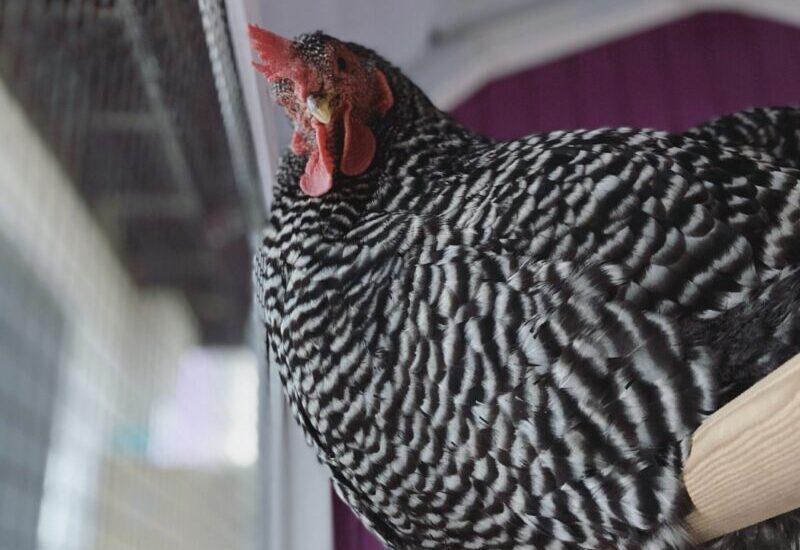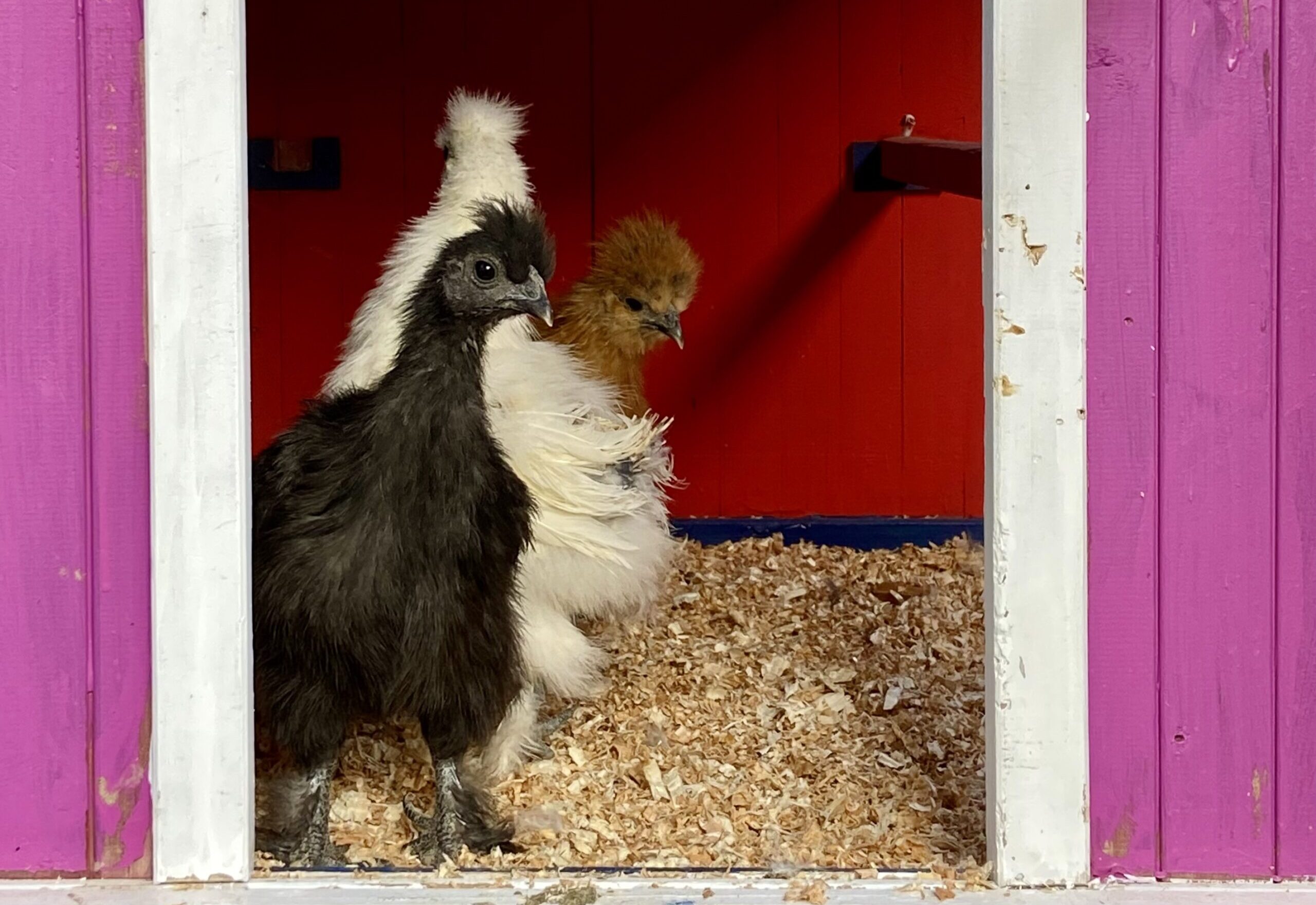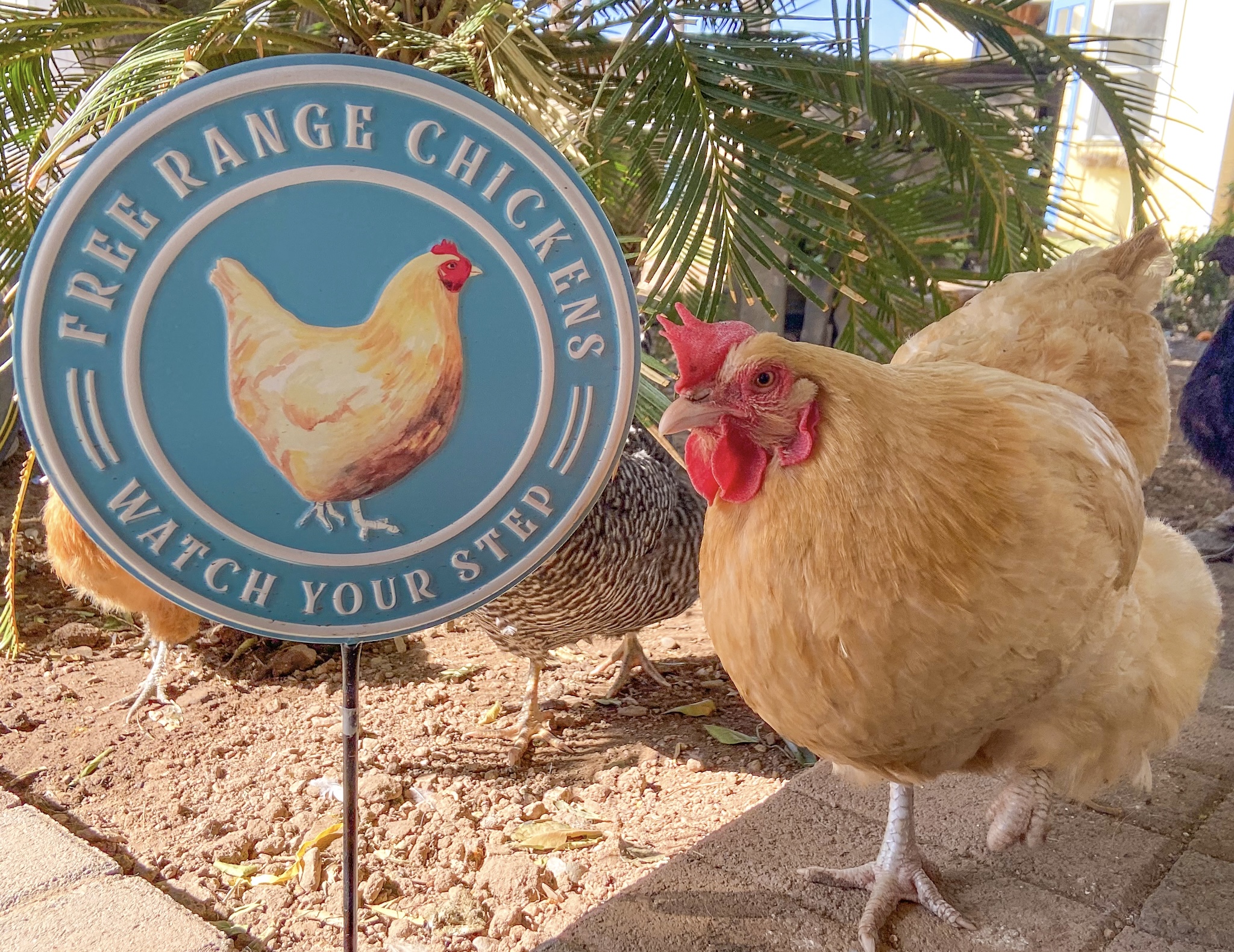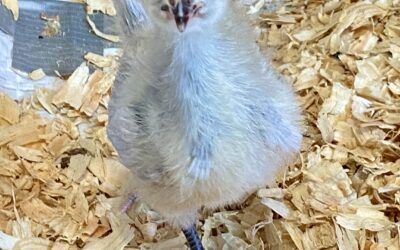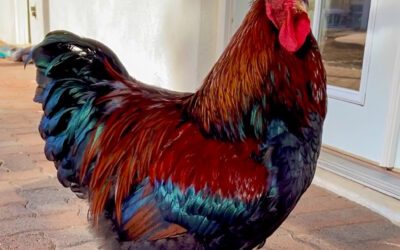Raising Chickens: Getting Started
Learning to raise chickens can be overwhelming at first. Follow along below to learn steps towards easy chicken raising!
Have you been wanting to raise chickens but aren’t sure how to start?
There are lots of things to consider before raising chickens! Our goal is to make it as easy as possible for you.
If you are truly a beginner with chickens, consider checking out our common chicken terminology page:
What you really need to raise adult chickens
Fresh Water
On average, an adult laying hen will drink about one pint of water a day.
Chickens need more water in warmer months (can drink up to a quart a day!).
Water intake depends on breed/size, outdoor temperature, and season.
Always make sure their waters have fresh water and NEVER deprive chickens of water
Food
Typically, a hen’s diet will consist of a layer feed (crumble or pellet feed from a local feed store), extra protein (mealworms, bugs, and kitchen scraps are great), treats (such as lettuce, kitchen scraps, and scratch), and extra calcium (oyster shells or crushed up eggshells).
Check out our Nutrition page for more information!
Shelter
Things to consider when building a chicken coop/shelter are:
-
- bedding
- biosecurity
- nesting box
- perches
- predator security
- roosts
- ventilation

Grit
Chickens digest their food differently than humans. They must swallow small, hard materials (sand, small pebbles, or oyster shells are common), collectively called “grit”, to help break down food in their gizzard.

Extra Calcium
To produce yummy eggs, chickens need extra calcium in their diet to produce hard, protective shells.
Oyster shells or crushed up eggshells are common sources of calcium.
Chickens will eat the extra calcium on their own, so just provide a bowl of it, or sprinkle it in their food.

Veterinary Access
From Avian Flu to eggbound hens, having access to a veterinarian for emergencies and checkups is important. Whether you use an online veterinary service (like Airvet) or have an office close by, find a vet before you get chickens.
Make sure to put together your own poultry first aid kit for common ailments you can treat at home!

Enrichment
If chickens are bored, bad things happen. They can
- Start pecking each other (which will stress the flock and in extreme cases lead to death)
- Destroy plants
- Dig too many holes for bathing
- Escape to look for something better
To avoid this, give your chickens stimulating actives or a job (looking for bugs, digging in compost, aerating the soil, grazing, food enrichment.

Community
It takes a village to raise a child, and raising chickens is no different. There is an AMAZING online community of people raising chickens, sharing methods, and providing support to other chicken farmers from backyard coops to large scale farming.
Some great places to start are social media (mainly Instagram and Facebook—check out our accounts and accounts we follow to start!), and www.backyardchickens.org .
Things to consider before getting chickens:
Purpose of your chickens
Do you want to raise chickens for meat, eggs, or both?
The answer to this question will determine the breed of chickens you get.
Broilers are chickens raised for meat. They have been bread to grow fast and usually do not live longer than 8-12 weeks.
Layers are hens bred to lay lots of eggs. A typical good layer hen lays between 200-380 eggs a year (depending on the breed).
Dual purpose breeds tend to lay a good amount of eggs (100-250 a year) but can also put on a lot of weight, making them good for eating as well.
Sometimes you will see the description light breeds vs heavy breeds to describe broilers and layers (respectively).
Local guidelines and regulations regarding chickens.
Before you consider raising chickens in your backyard, you will need to check your city’s municipal code.
Some cities have zoning regulations regarding the number of chickens you can have on your property, how far away from neighbors the coop must be, what to do with their waste, whether you can have a rooster, or even sell eggs!
Make sure to visit your city’s website to see what regulations are in place before you decide to get chickens.
Message us if you have questions, and we are happy to help!
Do you want to raise chicks, pullets, or laying hens?
Chickens require different care at different life stages. All three have their benefits, and disadvantages:
| Advantages | Disadvantages | |
|
Chicks (0 to ~20wks) |
Are more likely to bond with you, making handling easier later. Cheapest to buy eggs or chicks |
More time intensive Require more attention to keep alive May not be able to tell if you have a rooster or a hen |
|
Pullets (under 1 year old, we use this term to designate the period between chick and laying hen, usuallybetween 15-22 weeks old). |
Have time to bond with them (so they are easier to handle) Less fragile than chicks |
Do not lay eggs yet
|
|
Laying Hens (Hens start laying between 18 and 25 weeks) |
Lay eggs! You know you will be getting a rooster or a hen |
May not bond as well with you (meaning they will not want to be held as much) Egg production decreases by almost half after the hen is 2-3 years old, so if you get a hen close to that number, you may not get as many eggs. More expensive to buy at this life stage. |
Shelter Construction
The place a chicken lives looks different from home to home.
Factors such as weather, space, and local predators all affect the design of your chicken coop.
Make sure you build a secure coop and run, especially if you live in a place with active predators. Have this completed before you bring chickens home. If you are raising chicks, make sure you have their brooder set up before you bring the chicks home or before they hatch!
Access to Resources
Chickens must always have access to fresh, clean water.
This may seem like a no-brainer, but if you need to add a pump/water connection to your property or buy a water container, do this before getting chickens.
Chickens should also be placed somewhere with enrichment, shade, and access to food.
Security/biosecurity
Protect your family and your flock following simple biosecurity methods such as having separate “coop shoes,” raising food off the ground, protections to keep wild birds and predators away, etc.
Chicken-Proofing
Chickens have an unparalleled appetite and will devour anything within a matter of minutes.
If you have special plants on your property that you do not want chickens eating, make sure to “chicken proof” them. This includes gardens, plants chickens should not eat, and set grazing fields.
Chickens will find a way to eat the plants you do not want them to, regardless of free-range status. Unless they are in a totally enclosed run, you do not want to skip this step.
Our Program Director’s chickens frequently hop a 4′ fence to eat blueberries.
Responsible Flock Parent
Plan for disposing of waste
The average hen produces one cubic foot of manure every six months.
The great thing is chicken manure (when composted properly) is GOLD for your compost/garden beds!
Composting does not require much space and can easily be done in the city. We urge you to consider composting your chicken waste and recycling/reusing feed bags, but if that is not possible, plan for disposing of them correctly according to your city’s guidelines.
Biosecurity
Biosecurity refers to measures taken to prevent introduction and/or spread of harmful organisms (viruses, bacteria, bugs, etc.) to your flock.
This is a very important part about keeping chickens.
Biosecurity efforts include:
Washing your hands before and after handling your chickens.
Washing hands after handling eggs and other chicken items.
Keeping separate “coop shoes” to be worn inside the coop/run only.
Raising food and water off the ground and picking up kitchen scraps nightly to deter bugs and rodents.
Measures to keep wild birds away (consider: an enclosed run, no bird seed/houses by the chickens, getting a fake owl for the coop, etc.).
Frequently cleaning and disinfecting the coop and all coop related items.
Properly introducing pullets/new chickens to your flock and farm.
Paying attention to local news for outbreaks of avian diseases.
Items needed to raise chicks:
Brooder
Fresh Water
Starter feed (and grower feed after six weeks)
A heat source
Bedding
Optional: enrichment activities
Raising Chicks
Raising chicks can be time intensive, but also very rewarding. If you are starting with chicks rather than pullets or full grown hens, make sure you have these items to get you started!
Next
Steps
Watch our Raising Chickens Tutorial Videos to learn more about caring for your chickens.
Print out our easy chicken routine pages and put them by your coop!
Read up on chicken breeds and
buy your chickens!
Learn more about raising chickens from the Coop Scoop!
What to Look for When Purchasing Healthy Chickens
Not all stores let you pick out your own chicks, but if you are lucky enough to be in a position to pick out what chicks/adult chickens you want to buy, these are things you want to look for to make sure you are purchasing a healthy chicken.
Sourcing Chickens: Where to find and buy chickens
Learn 6 places to buy or source chickens for free to start your backyard flock or expand your farm!
Keeping Roosters
Roosters, or rather one rooster, can be a great addition to a backyard flock…if you are allowed to have them. Many cities do not allow roosters because of their noise (a rooster’s crow is 100dB from 1 meter away).
If you are allowed to keep a rooster, there are many benefits for your flock…

